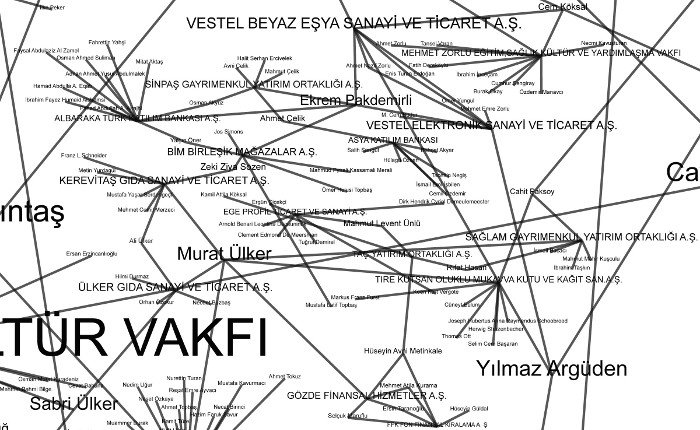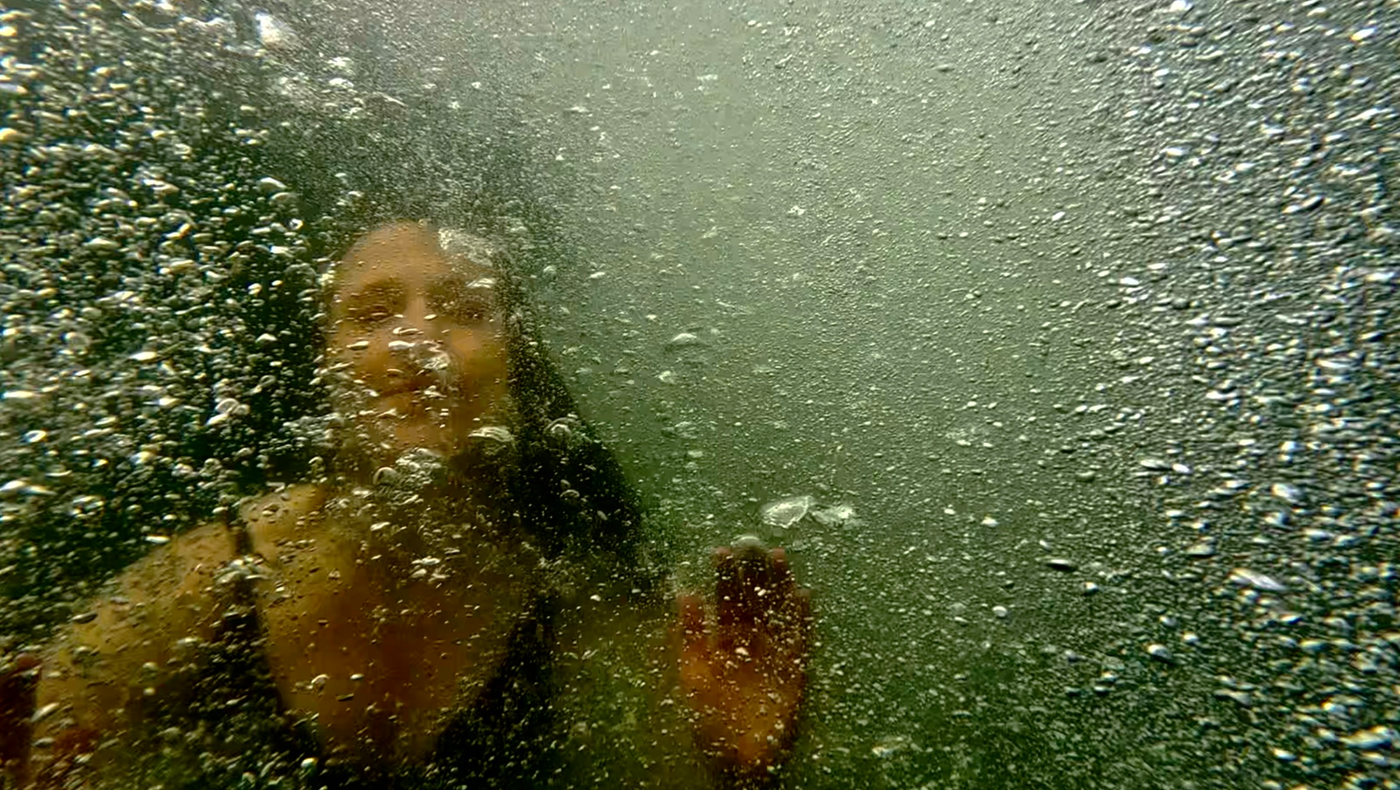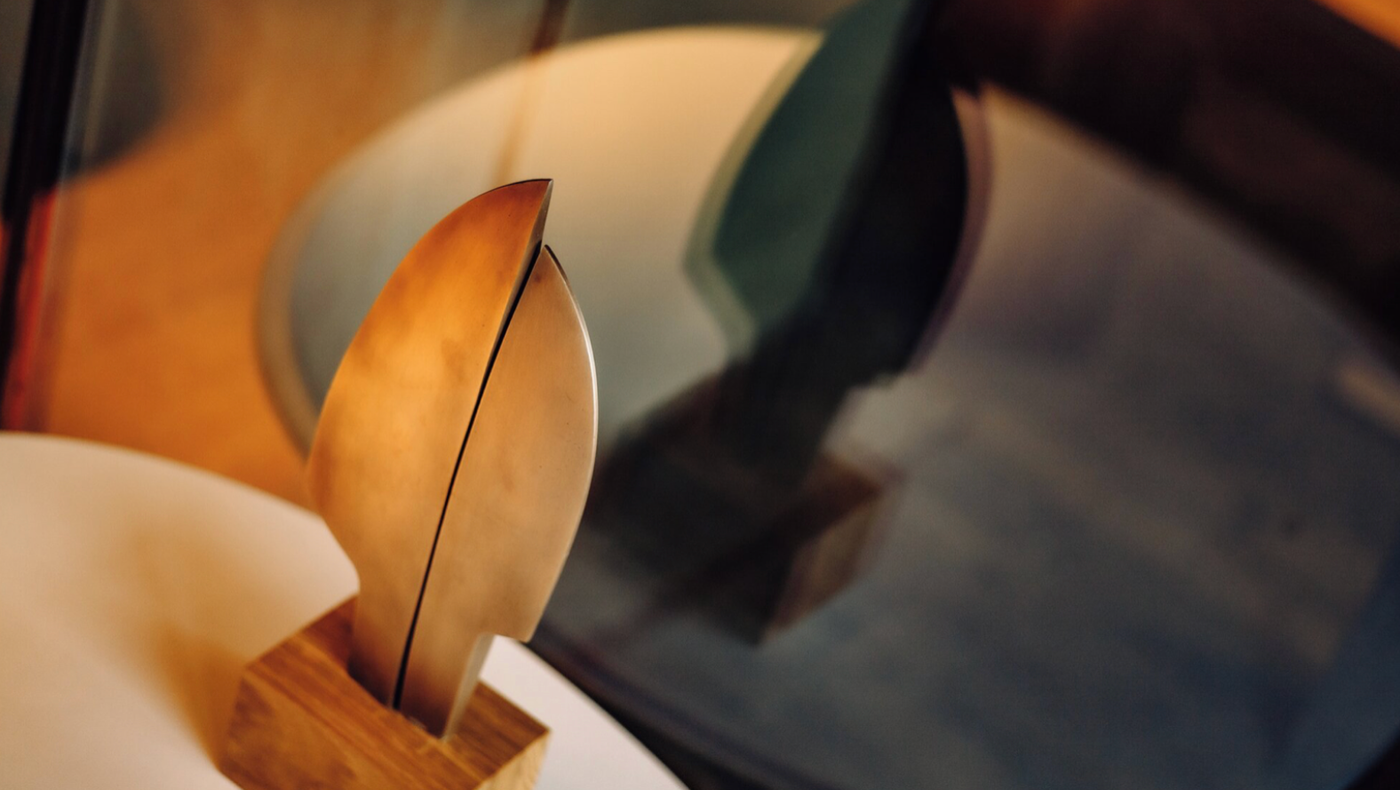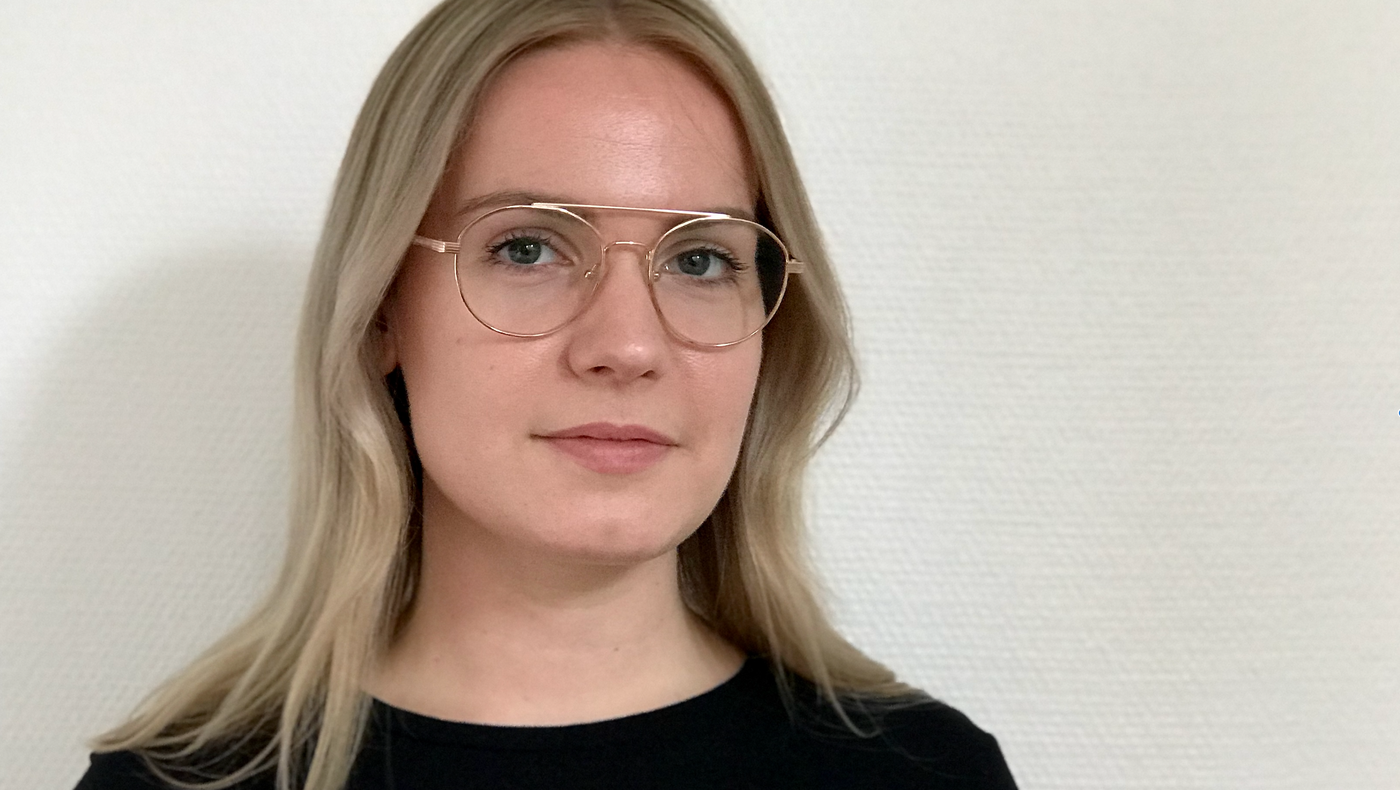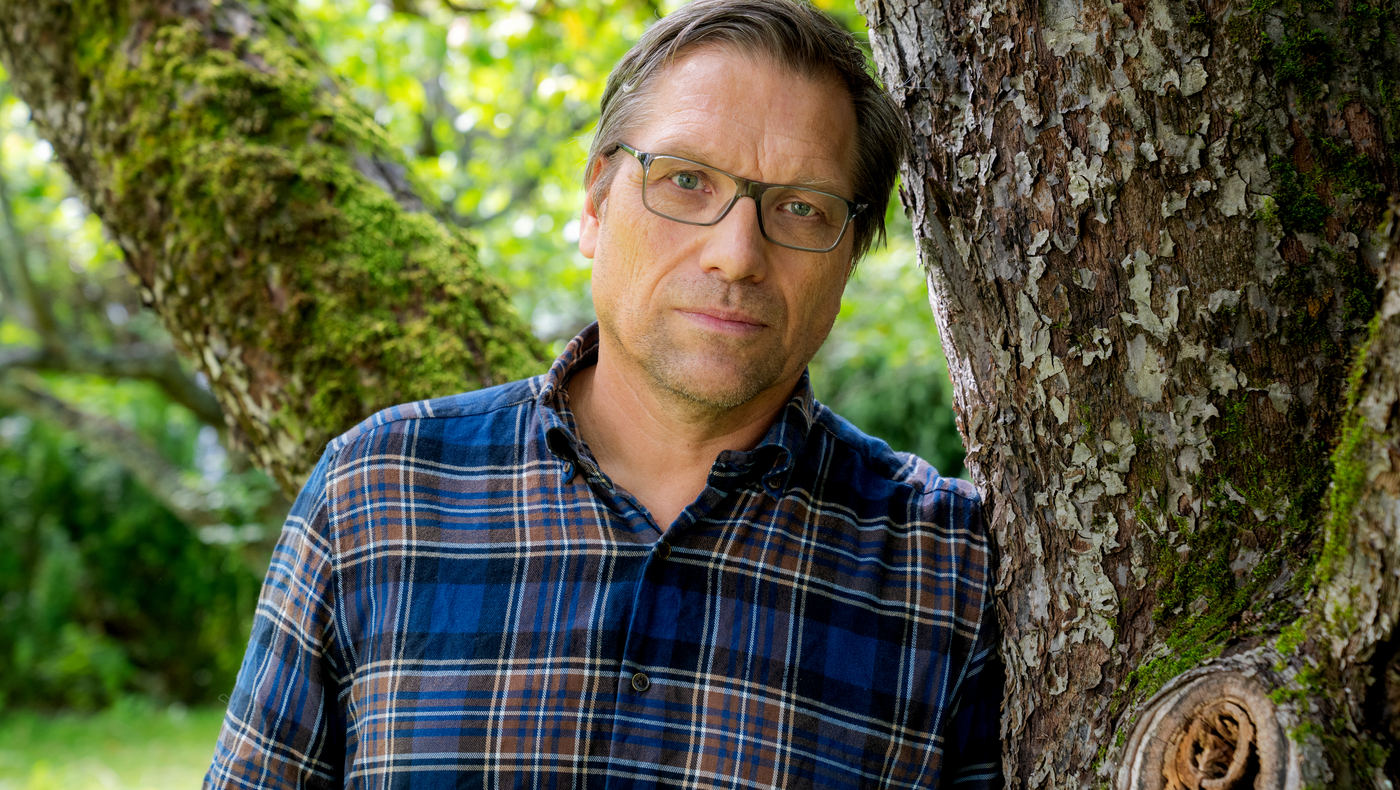A Free Image. A Free Word. A Free Gesture: A Seminar on Speech
Monday, 19 August 2013 9:00-17:30
at Fritt Ord Foundation (The Freedom of Expression Foundation), Uranienborgveien 2, Oslo.
Organized by Henie Onstad Kunstsenter in collaboration with Fritt Ord Foundation.
In the aftermath of Anders Behring Breivik’s attacks 22 July in Norway, the Slovenian philosopher Slavoj Žižek coined 2011 the year of dreaming dangerously. It is no longer a dream. In several countries freedom of speech is restricted through different means of control, and right wing extremism is on the rise once again. This seminar investigates freedom of speech as an image, as a gesture and as a term through three lectures, while five status reports given by artists, writers and curators from different regions of Europe will look at how this fundamental right is being altered, redefined, used and misused and fought for.
PROGRAM:
09:00-09:30 Registration and coffee
09:30-09:40 Introduction: Tone Hansen (Norway)
09:40-10:20 Freedom, Action, Image: Thomas Keenan (USA)
10:20-10:50 Travelling narratives: Behzad Khosravi (Iran/Sweden)
Coffee-break until 11.10
11:10-12:00 Dare to Betray: Boris Buden (Croatia/Germany)
12:00-12:30 Critical Network Mapping: Burak Arikan (Turkey)
Lunch until 13.40
13:40-14:30 We are Living on a Star: Art, Politics and the Everyday: Marit Paasche (Norway)
14:30-15:00 Occupying Cultural Territories: Barnabás Bencsik (Hungary)
15:00-15:30 The Dark Net: Øyvind Strømmen (Norway)
Coffee-break until 1600
16:00-16:30 The End of Snobbery?: Ekaterina Degot (Russia)
16:30-17:10 Photography as speech: Ahlam Shibli (Palestine) in conversation with Tone Hansen
17:10 Summary and discussion – Milena Høgsberg (Denmark/Norway)
End 1730
Coffee and lunch will be served.
ABOUT
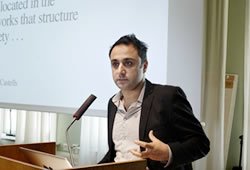
(foto: Monica Larsen/Fritt Ord)
Critical Network Mapping: Arikan will take us through his works, starting from My Pocket (2008) while raising questions on the exploitation of immaterial value; discussing Network Map of Foundations and Corporations in Turkey (2010) in relation to the problem of power and governance during the Gezi Protests; narrating the network maps collectively created on the Graph Commons platform (2011-); finally discussing the recent collective research and mapping project on neoliberalism in Turkey, Network of Dispossessions, a cartography of government-corporate partnerships in urban transformation.
Burak Arikan is an artist working with complex networks. He takes the obvious social, economical, and political issues as input and runs them through an abstract machinery, which generates network maps and algorithmic interfaces, results in performances, and procreates predictions to render inherent power relationships visible, thus discussable. Recent exhibitions include: Home Works 6 (2013), 11th Sharjah Biennial (2013), 7th Berlin Biennale (2012), and Nam June Paik Award Exhibition (2012). Arikan is the founder of Graph Commons platform, dedicated to provide “network intelligence” for everyone.
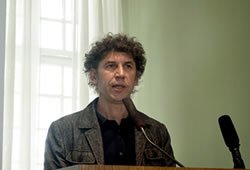
(foto: Monica Larsen/Fritt Ord)
Occupying Cultural Territories: As a concerned eyewitness of the present cultural-political power struggle, Bencsik will outline the situation in Hungary, described as a systematic undermining of the plural and prosperous institutional landscape to create instead a hegemonic and monolith structure on the basis of national sentiment in a post-Communist situation but among the props of democracy. How to find the most effective strategy to protect our fundamental values against the two-thirds supermajority? With reference to its two-thirds parliamentary majority, which is unprecedented in the post-war history of the European democratic societies, Hungary’s ruling party, Fidesz claims that they are authorized to push through fundamental changes in all fields of society. The government’s obvious goal is a complete change of not only the political, economic and bureaucratic but also the intellectual elite.
Barnabás Bencsik is a curator who lives and works in Budapest. He earned his degree in literature and history, later in history of art from the ELTE University Budapest. Bencsik became involved in the changing period of the Hungarian post-communist art scene from the early 90s. He initiated and, from 2006, is the director of ACAX | Agency for Contemporary Art Exchange (acax.hu), which is an office to support and develop various type of cooperation between the local and the international art scene. Bencsik was the director of Ludwig Museum–Museum of Contemporary Art, Budapest between 2008-2013, but because of the radical shift in the Hungarian cultural policy, he was not re-appointed.
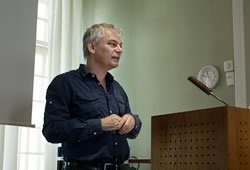
(foto: Monica Larsen/Fritt Ord)
Dare to Betray: Today’s liberal democratic state guarantees freedom of expression precisely by imposing spatial limits on it. In only one part of its public space, people are allowed to enjoy this freedom in the plurality and diversity of their private languages. The other part is reserved for its own language in which freedom of expression is not allowed in order to protect from it. But what if one betrays the rules of that game? Is there freedom of speech beyond the existing regimes of fidelity? Does it include now the right to betrayal?
Boris Buden is a writer and cultural critic based in Berlin. He studied philosophy in Zagreb (Croatia) and received his PhD in cultural theory from the Humboldt University in Berlin. In the 1990s he was editor of the magazine Arkzin in Zagreb. His essays and articles cover the topics of philosophy, politics, cultural and art criticism. He has participated in various conferences and art projects in Western and Eastern Europe, Asia and USA, including Documenta XI. Among his recent books is Zone des Übergangs: Vom Ende des Postkommunismus (Zone of Transition: On the End of Post-communism), Suhrkamp 2009. Buden is currently visiting professor at Faculty for Art and Design, Bauhaus-University Weimar.
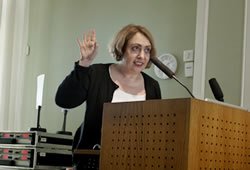
(foto: Monica Larsen/Fritt Ord)
The End of Snobbery?: While the abrupt end of Soviet welfare state is rarely a slogan in the current political protests in Russia, it was one of their catalysts, having created an army of precarious workers, who have nothing to lose but their Facebook accounts. While, on the surface, the questions of freedom of speech and expression are raised, in fact it is the equality vs. inequality, the class debate, which is at stake in a sometimes unexpected way. Ekaterina Degot will refer to the current political situation in Russia and will draw an ideological map of it.
Ekaterina Degot Ph.D. is an art historian, writer, and curator based in Moscow. For many years a journalist and art critic with a sharp political position, she has also written for several international publications about Soviet modernism, contemporary Russian society, and its art scene. She has been a guest professor at various American and European universities and is currently a professor at the Rodchenko Moscow School of Photography and Multimedia. Besides many art historical and anthropological shows based on research, she curated (with Cosmin Costinaş and David Riff), the first Ural Industrial Biennial in Ekaterinburg, 2010; the discussion platform of the first Kiev Biennial of Contemporary Art, 2012; and was co-curator of Time/Food at Stella Art Foundation in Moscow, 2012. She recently co-edited the book Post-Post-Soviet?: Art, Politics and Society in Russia at the Turn of the Decade (2013).
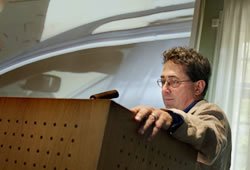
(foto: Monica Larsen/Fritt Ord)
Freedom, Action, Image: Too often we defend freedom of expression by treating our freedom as a given, something natural which is unnaturally impinged upon. But freedom is a political project, a hard-won accomplishment where it exists at all. To respond to threats on liberties, and to confront what we perhaps too casually call “extremism,” we need to think and practice freedom of expression politically, to make arguments for it and to invent ways of realizing it that make it clear why it is not simply an abstract value or a legal norm, but something that matters in a world of power and struggles for equality. To do this properly, we need to attend as well to the hazy borderlines between expression and action, and likewise to explore varieties of expression that go beyond the verbal, particularly at a moment when the image seems increasingly fundamental as a medium of protest, dissent, propaganda, polemic, and creation.
Thomas Keenan teaches literary theory and human rights at Bard College, where he directs the Human Rights Project and helped create the first undergraduate degree program in human rights in the United States. He is the author of Fables of Responsibility (Stanford UP, 1997), and with Eyal Weizman, Mengele’s Skull (Sternberg, 2012). He is co-editor, with Wendy Chun, of New Media, Old Media (Routledge, 2006), and with Tirdad Zoghadr, of The Human Snapshot (Luma/Sternberg/CCS, 2013). He curated “Antiphotojournalism,” with Carles Guerra (Barcelona and Amsterdam, 2010–11), and “Aid and Abet” (Quebec, 2011). He has served on the boards of a number of human rights organizations and journals, including WITNESS, Scholars at Risk, the Crimes of War Project, the Journal of Human Rights, and Humanity.
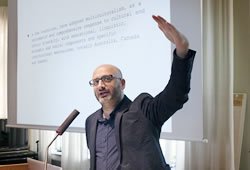
(foto: Monica Larsen/Fritt Ord)
Travelling narratives will address the idea of global image, in the field of artistic representation and documentary narration, and therefore the effect on public opinion. Khosravi Noori will define the concept of global image in relation to his recent artistic projects like in the film Reverberation (2012, in collaboration with René León). This relation is analyzed through different aspects: from the message broadcasted, through the narration of the film, to the institutions involved; from the way the message is illustrated (represented) to how people observe and make meaning out of such message; from the reality to the politically made fiction out of this reality. He will discuss the political understanding of aesthetic within, the pre-perception of the others in stigmatic areas and of people who live in places in Sweden such as Husby, in relation to artistic critical-political representation of “outside” and “outsider” as stigmatic nations.
Behzad Khosravi Noori is an artist and researcher with an M.A. in Motion Images from Tarbiat Modares University in Tehran. Since then, Khosravi Noori has been involved in research, and teaching history and theory of art in art schools in Tehran. In 2011, he achieved his second master in Art in Public Realm at Konstfack, while focusing in multiple identities within the discourse of European multiculturalism and hyper politicized socio environments. Khosravi Noori is currently a guest researcher at Konstfack’s Department of Fine Arts.
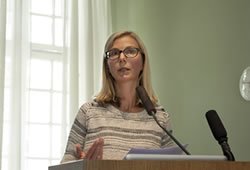
(foto: Monica Larsen/Fritt Ord)
We are Living on a Star: Art, Politics and the Everyday: In the art world, the term “political” has been widely reserved for artworks with specific political or provocative content. One of the purposes of We are Living on a Star is to approach art as political on its own terms. Paasche will discuss the consequences of the dichotomy “political art” and “free art”, and how it could be overcome.
Marit Paasche is an art historian working as Associate Professor of Art Theory at the Oslo Academy of Fine Art and Head of research at the Norwegian Video Art Archive. She also works as an art critic, curator and writer. Her field of specialty is American and European contemporary art, with a particular focus on video art and experimental film. Paasche has been an editor of several books, including A Thousand Eyes: Media Technology, Law, and Aesthetics (Sternberg Press, 2011), Urban Images: Unruly Desires in Film and Architecture (Sternberg Press 2011) and she has published frequently on the issue of film and visual arts. Paasche is also working on a book on Hannah Ryggen and modernism with the preliminary title From All Sides of the Square (2014).
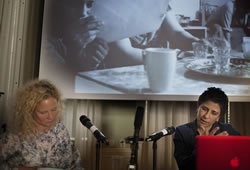
(foto: Monica Larsen/Fritt Ord)
Photography as speech: Ahlam Shibli’s latest series of photos entitled Death (2011-2012) forms the basis for the conversation with Tone Hansen (HOK). Death is part of the larger solo presentation Phantom Home currently on display at Galerie nationale du Jeu de Paume, Paris. Death shows the efforts of Palestinian society to preserve the presence of those who lost their lives fighting against the occupation. The series contains a broad representation of the absent ones through photographs, posters, graves and graffiti displayed as a form of resistance against the colonial regime. The exhibition has started a heated debate in France, not only because of the gesture of the images but for the accompanying texts. The controversy is of interest because it shows not only the expected role of the art institution in the public, but also because it opens up for a possibility of talking about the representative function as well as the political potential of an image.
Ahlam Shibli was born in 1970 in Palestine where she is based. Through a documentary aesthetics, her photographic work addresses the contradictory implications of the notion of home. It deals with the loss of home and the fight against that loss, but also with restrictions and limitations that the idea of home imposes on individuals and communities marked by repressive identity politics. Unrecognised (1999–2000), Goter (2002–03), Trackers (2005), Arab al-Sbaih (2007), The Valley (2007–08) and Death (2011–12) focus on the living conditions of the Palestinian people; Trauma (2008–09) takes at its starting point monuments that commemorate members of the French resistance against the Nazis together with French fighters in the colonial wars against people who demanded their own independence; in Eastern LGBT (2004 / 2006) the bodies of lesbians, gays, bisexuals and transsexuals from Oriental societies appear as a contested primary home; Dependence (2007) explores the distribution of bodily strength between the rich and the poor, the old and the young; Dom Dziecka. The house starves when you are away (2008) shows how children in Polish orphanages reconfigure their bodies to create particular communities of their own.
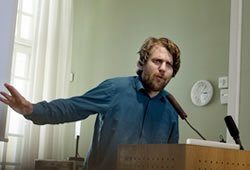
(foto: Monica Larsen/Fritt Ord)
The Dark Net: Right-wing extremism has never gained much traction in Norway. Still, Norway experienced one of the worst terrorist atrocities carried out by a right-wing extremist in recent history. What does this tell us about the Internet’s potential as a tool for growing and spreading hatred, for fostering violence and also for spreading fringe views towards the mainstream?
Øyvind Strømmen is a Norwegian journalist and author who has worked extensively with different forms of political extremism, and especially with right-wing extremism. He has written two books concerning right-wing extremism and radicalism in Europe and Norway, Det mørke nettet (The Dark Net) and Den sorte tråden (The Black Thread), and is currently working on a book on anti-Muslim extremism. He has also contributed with articles to a number of Norwegian and foreign newspapers and magazines, and was called as an expert witness in the trial against Anders Behring Breivik.
This seminar is held in advance of the exhibition project We Are Living on a Star, curated by Tone Hansen and Marit Paasche, opening 30 January 2014 at Henie Onstad Kunstsenter in collaboration with Fritt Ord Foundation. The title comes from the tapestry of Hannah Ryggen from 1958 that was hanging in the Norwegian government building and that suffered a tear in its lower part during the bombing in 2011. The project investigates the concepts of normality, collective values and freedom of speech. During and after the trial against Anders Behring Breivik, Norway was encompassed in a larger debate about his sanity and responsibility, about normality and the soundness of the mind. Normality, however, is far more than the opposite of insanity. The normative intervenes in all parts of society and regulates all our actions; it defines what is natural.
Participating artists: Burak Arikan, Doug Ashford, Julian Blaue, Martin Braathen in collaboration with Marius Engh and Even Smith Wergeland, Marthe Ramm Fortun, Hanne Friis, Else Marie Hagen, Silje Linge Haaland, Per-Oskar Leu, Lotte Konow Lund, Jumana Manna, Eline McGeorge, Eva Rothschild, Hannah Ryggen, Ahlam Shibli, and Javier Téllez.
Illustration: Burak Arikan, Network of Foundations and Corporations Through Shared Board Members: Turkey Edition, 2010, Custom software digital print, 150×220 cm, Courtesy of the artist.
